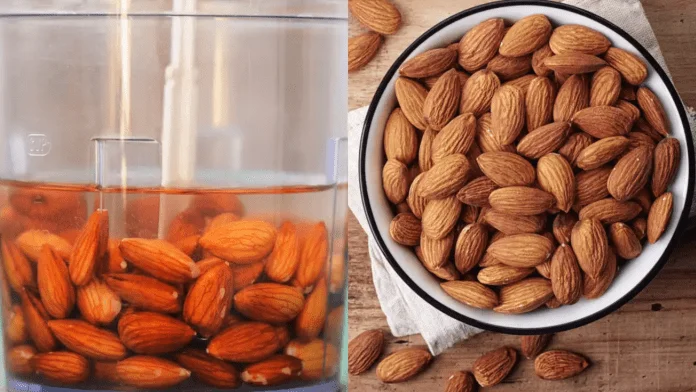Nuts are nutrient-dense powerhouses, packed with essential vitamins, minerals, healthy fats, and antioxidants. They are an integral part of a balanced diet and have been associated with numerous health benefits, including improved heart health, reduced inflammation, and better weight management. However, the way nuts are prepared and consumed can significantly impact their nutritional value and potential health benefits. This article aims to explore the different ways of eating nuts – roasted, raw, and soaked – to determine which method is best for optimizing health.
Raw Nuts: Preserving Nature’s Bounty
Raw nuts are unprocessed and unroasted, maintaining their natural state with all the essential nutrients intact. Eating nuts in their raw form offers several advantages:
- Retention of Nutrient Composition:
Raw nuts have a high content of healthy fats, such as monounsaturated and polyunsaturated fats, which are essential for heart health. These fats remain unchanged in their raw state, providing maximum benefits to the body.
- Enzymatic Activity:
Raw nuts contain enzymes that aid in digestion and nutrient absorption. Heat can denature these enzymes during roasting, potentially reducing their bioavailability.
- Low Oxidation Risk:
Raw nuts have a lower risk of oxidation due to their natural protective coatings. Oxidation of fats can lead to the formation of harmful free radicals, which may damage cells and contribute to various diseases.
However, despite these advantages, some individuals may find raw nuts harder to digest and less flavorful compared to roasted nuts.
Roasted Nuts: Enhancing Flavor and Texture
Roasting nuts involves subjecting them to dry heat, enhancing their flavor, and changing their texture. The roasting process brings about several positive aspects:
- Improved Flavor Profile:
Roasting intensifies the nutty flavors, making them more appealing to many palates. This enhanced taste can encourage increased nut consumption, promoting the intake of essential nutrients.
- Easier Digestion for Some Individuals:
Roasting nuts can break down certain compounds that might hinder digestion. As a result, some individuals find roasted nuts easier to digest than raw nuts.
- Enhanced Aroma:
Roasting releases the aroma of nuts, which can stimulate the senses and add to the overall enjoyment of consuming them.
However, roasting also has some downsides that can impact the nutritional quality of nuts:
- Loss of Heat-Sensitive Nutrients:
The high temperatures used during roasting can degrade heat-sensitive nutrients like vitamin E and certain antioxidants, reducing their bioavailability.
- Increased Oxidation:
The roasting process can lead to the formation of advanced glycation end products (AGEs) and acrylamide, which have been linked to oxidative stress and potential health risks.
- Added Ingredients:
Commercially roasted nuts may contain added oils, salt, or flavorings, which can add extra calories, sodium, and other substances that may not be ideal for some dietary preferences.
Soaked Nuts: Unlocking Nutrient Potential
Soaking nuts involves immersing them in water for a certain period before consumption. This process is popular among health-conscious individuals and can offer unique benefits:
- Improved Nutrient Absorption:
Soaking nuts activates enzymes that aid in breaking down phytic acid and enzyme inhibitors, which are natural compounds that can hinder nutrient absorption. By reducing these compounds, soaked nuts can enhance nutrient availability.
- Enhanced Digestibility:
Soaking can make nuts easier to digest by reducing the content of tannins and other anti-nutrients that might irritate the digestive system.
- Increased Hydration:
Soaked nuts can contribute to daily water intake, promoting hydration and overall well-being.
Nonetheless, there are some considerations regarding soaked nuts:
- Time-Consuming Process:
Soaking nuts requires advance planning and can be inconvenient for those seeking a quick and easy snack option.
- Altered Texture:
Soaking can change the texture of nuts, making them softer and potentially less enjoyable for some individuals.
- Risk of Spoilage:
Soaked nuts have a shorter shelf life and may be susceptible to bacterial growth if not handled properly.
Finding the Best Balance: Moderation and Variety
When considering the best way to eat nuts for optimal health, it’s essential to strike a balance and embrace variety in consumption:
- Moderation is Key:
Regardless of whether nuts are raw, roasted, or soaked, moderation is crucial. Nuts are calorie-dense, and excessive consumption can lead to weight gain.
- Personal Preferences and Tolerances:
Individuals should consider their taste preferences, digestive tolerance, and nutritional requirements when choosing how to eat nuts. Some people may prefer the taste of roasted nuts, while others may opt for the nutrient retention of raw or soaked nuts.
- Culinary Use:
The preparation method can also depend on the intended culinary use. For instance, roasted nuts might be preferred for baking or adding crunch to a dish, while soaked nuts could be used in smoothies or raw desserts.
- Mix and Match:
To maximize the benefits, consider mixing and matching different types of nuts in their various forms to diversify nutrient intake.
Final Thoughts:
Nuts are a valuable addition to any healthy diet, offering a wide range of nutrients and health benefits. Choosing the best way to eat nuts for optimal health depends on personal preferences, nutritional needs, and culinary applications. Raw nuts maintain their natural nutrient composition but may be harder to digest. Roasted nuts enhance flavor but may undergo nutrient losses and potential oxidation. Soaked nuts improve nutrient availability and digestibility but require planning and may have altered textures. Ultimately, moderation and variety are essential for enjoying the many health benefits of nuts while catering to individual preferences and dietary requirements.





